Academia Sinica, the nation’s top research institution, is launching a second wave of recruitment targeting prospective doctoral students in the wake of continued uncertainty over the US academic landscape.
The effort, part of Academia Sinica’s fast-enrollment program, is focused on doctorate candidates who have been admitted to top-tier universities, but have not yet registered, the institution said.
The students would first undertake an internship at Academia Sinica for several months before joining its Taiwan International Graduate Program next year.
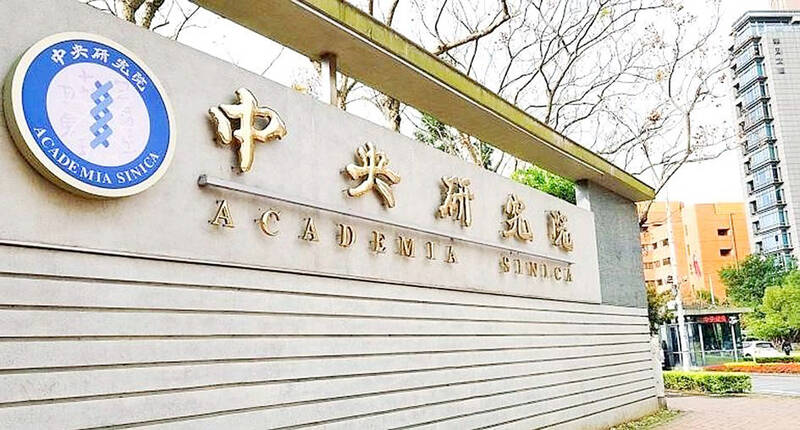
Photo: Yang Yuan-ting, Taipei Times
The initiative offers 13 programs, including six in the life sciences, and seven in mathematics and physical sciences, its Web site says.
Students in the program receive a tax-free monthly stipend of NT$40,000 in their first year, which can be extended for an additional year based on performance.
Further financial support depends on their thesis advisers, the Web site says.
The second round of recruitment follows US President Donald Trump’s attempt to restrict foreign student visas at Harvard University on national security grounds.
Harvard is permitted to admit international students after two federal courts ruled in its favor late last month and early this month.
Previously, Academia Sinica had accepted 11 doctoral candidates during its first wave of recruitment, launched in April.
That effort came in response to a Nature poll of more than 1,600 respondents, which found that 75 percent of US-based scientists were considering leaving the country due to drastic changes in the research environment.
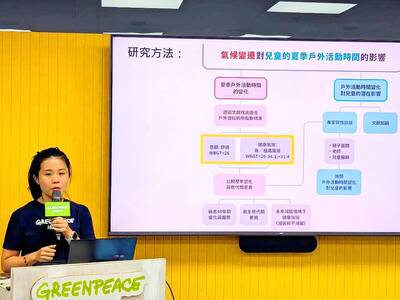
The government should improve children’s outdoor spaces and accelerate carbon reduction programs, as the risk of heat-related injury due to high summer temperatures rises each year, Greenpeace told a news conference yesterday. Greenpeace examined summer temperatures in Taipei, New Taipei City, Taoyuan, Hsinchu City, Taichung, Tainan and Kaohsiung to determine the effects of high temperatures and climate change on children’s outdoor activities, citing data garnered by China Medical University, which defines a wet-bulb globe temperature (WBGT) of 29°C or higher as posing the risk of heat-related injury. According to the Central Weather Administration, WBGT, commonly referred to as the heat index, estimates
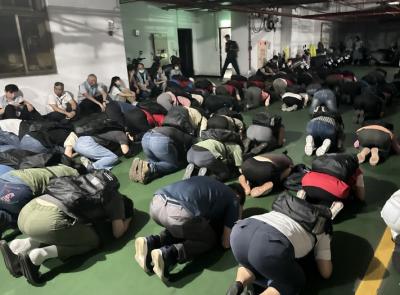
Taipei and other northern cities are to host air-raid drills from 1:30pm to 2pm tomorrow as part of urban resilience drills held alongside the Han Kuang exercises, Taiwan’s largest annual military exercises. Taipei, New Taipei City, Keelung, Taoyuan, Yilan County, Hsinchu City and Hsinchu County are to hold the annual Wanan air defense exercise tomorrow, following similar drills held in central and southern Taiwan yesterday and today respectively. The Taipei Mass Rapid Transit (MRT) and Maokong Gondola are to run as usual, although stations and passenger parking lots would have an “entry only, no exit” policy once air raid sirens sound, Taipei
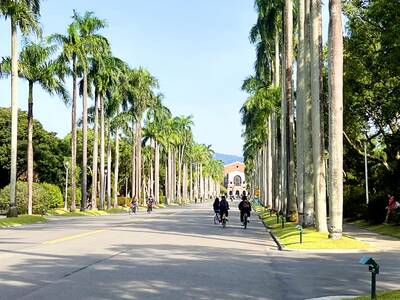
Taipei placed 14th in the Quacquarelli Symonds (QS) Best Student Cities 2026 list, its highest ever, according to results released yesterday. With an overall score of 89.1, the city climbed 12 places from the previous year, surpassing its previous best ranking of 17th in 2019. Taipei is “one of Asia’s leading higher-education hubs,” with strong employer activity scores and students “enjoying their experience of the city and often keen to stay after graduation,” a QS staff writer said. In addition to Taipei, Hsinchu (71st), Tainan (92nd), Taichung (113th) and Taoyuan (130th) also made QS’ list of the top 150 student cities. Hsinchu showed the
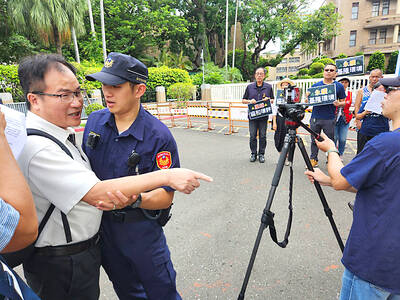
Environmental groups yesterday filed an appeal with the Executive Yuan, seeking to revoke the environmental impact assessment (EIA) conditionally approved in February for the Hsieh-ho Power Plant’s planned fourth liquefied natural gas (LNG) receiving station off the coast of Keelung. The appeal was filed jointly by the Protect Waimushan Seashore Action Group, the Wild at Heart Legal Defense Association and the Keelung City Taiwan Head Cultural Association, which together held a news conference outside the Executive Yuan in Taipei. Explaining the reasons for the appeal, Wang Hsing-chih (王醒之) of the Protect Waimushan Seashore Action Group said that the EIA failed to address